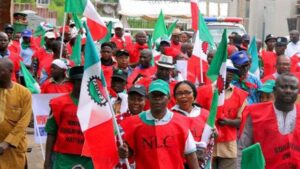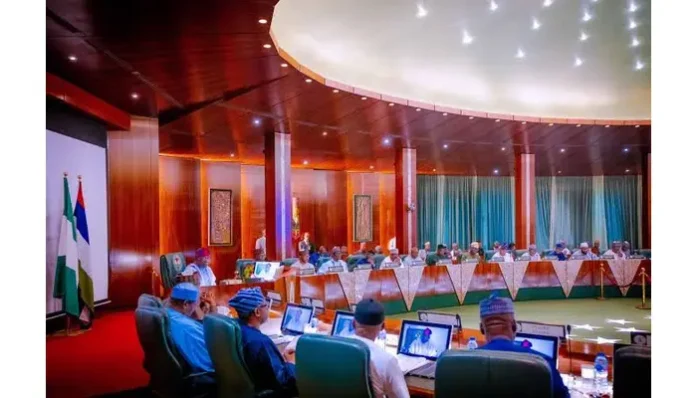The prolonged negotiations over Nigeria’s national minimum wage remain unresolved as labour unions and the federal government struggles to reach a consensus. Despite months of discussions, the two sides have yet to agree on a new minimum wage, leaving workers across the country in a state of uncertainty.
The Tripartite Committee on the new minimum wage proposed a figure of 62,000 nairas, while organized labour is steadfast in its demand for a 250,000 naira minimum wage. This significant disparity has been a major stumbling block in the negotiations.
Recently, the Nigeria Labour Congress (NLC) and the Trade Union Congress (TUC) rejected a proposal by the Southern Governors’ Forum to decentralize minimum wage negotiations to state governments. According to organized labour, allowing states to determine their minimum wages would threaten the welfare of Nigerian workers and undermine the national economy.

In a statement on June 28, Benson Upah, the Head of Information and Public Affairs for the NLC, expressed concerns over the proposal. He argued that it not only undermines the essence of a national minimum wage but also poses a dictatorial threat to workers’ rights.
“The notion that states should determine their minimum wages threatens the welfare of Nigerian workers and the national economy. It is dictatorial and undermines the very essence of a national minimum wage,” Upah stated.
The Southern Governors’ Forum, however, maintains that minimum wage should reflect the cost of living and each state’s ability to pay. They argue that a uniform national minimum wage does not account for the economic disparities between states.
“The minimum wage should be reflective of the cost of living and the ability to pay. Each state should be allowed to negotiate its minimum wage,” the governors stated after their recent meeting.
The federal government has defended the proposed 62,000 naira minimum wage, which it claims was reached after considering various social, economic, and political factors, as well as international best practices. The Tripartite Committee, which includes representatives from the government, organized labour, and the Organized Private Sector (OPS), argues that the upward review from the current 30,000 naira is both necessary and beneficial.
“The Committee has critically examined the National Minimum Wage using all necessary parameters, including social, economic, and political considerations, and relevant International Labour Organization conventions. The 62,000 naira proposal is a balanced figure agreed upon by the government and the Organized Private Sector,” the committee stated.
Despite these arguments, labour unions remain adamant about their demand for a 250,000 naira minimum wage. They insist that this figure reflects the true cost of living and provides a livable wage for Nigerian workers. The unions have been pushing for this increase even before President Bola Tinubu took office in May 2023.
“Our demand remains 250,000 naira. We have not been given any compelling reasons to change this position during the tripartite negotiation process,” labour unions reiterated in their Democracy Day statement.
The ongoing impasse highlights the challenges of balancing economic realities with the need to provide a fair and livable wage for workers. As the deadline for an agreement looms, both sides remain entrenched in their positions, with the federal government and organized private sector advocating for 62,000 naira, while labour unions hold out for 250,000 naira.
Governor Bola Tinubu has been urged to consider both proposals carefully. The Tripartite Committee has presented the 62,000 naira figure as a practical and agreed-upon solution, while also acknowledging the labour unions’ 250,000 naira demand.
The resolution of this issue is crucial for the economic stability and welfare of Nigerian workers. A balanced approach that considers both the government’s financial constraints and the workers’ need for a livable wage is essential. As negotiations continue, the hope is that a fair and sustainable agreement can be reached that will benefit all parties involved.




